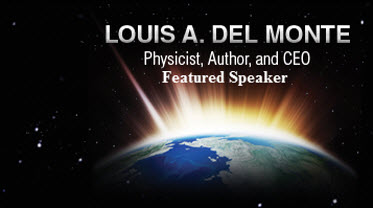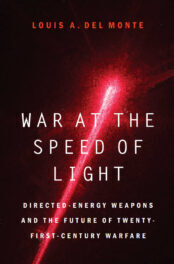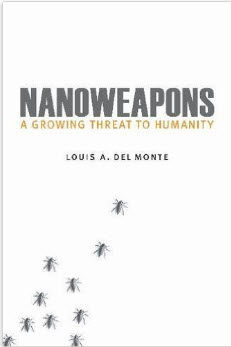Theoretical physics, often refereed to as the purist form of science, rests on two incompatible theories:
1. Einstein’s theory of special and general relativity
2. Quantum mechanics
Both theories work well in their limited range of application, relativity at the macro-level and quantum mechanics at the micro-level of atoms and subatomic particles. However, the mathematical underpinnings of each theory are not mutually compatible. Attempting to combine them mathematically has led to numerous singularities (i.e., mathematical expressions that equate with one or more infinities and remain undefined). They also do not mutually explain gravity. While general relativity does propose a physical and mathematical theory of gravity, it cannot be extended to the quantum level.
New theories have been proposed to resolve this dilemma. The current most widely proposed solution is M-theory (i.e., the highest level string theory). Without going too deeply into the details, it proposes that all reality is composed of one-dimensional vibrating strings of energy. The mathematics is elegant and apparently highly compelling to world-class physicists like Stephen Hawking, who argues it is the theory of everything and we no longer need a God to explain the universe. There are only two problems with Dr. Hawking’s assertions. First, M-theory has not been verified by any scientific experiment or observation. Today’s science is unable to measure the one-dimensional vibrating strings of energy, if they indeed exist. The second problem is that even if M-theory is correct, there is still an unanswered question. What is it that established that level of order in the universe that would allow us to understand it mathematically? Some reply God, and some ignore the questions entirely. Others, like Lawence Maxwell Krauss, an American theoretical physicist and cosmologist, have gone to great lengths to prove the universe is energy neutral and, thus, could have came from nothing. Still, even if Dr. Krauss is correct, what gives rise to the organized nature of the universe? I think that is the most difficult question to answer, and no one has proposed an widely accepted scientific answer.
Given the current state of theoretical physics, it is reasonable to ask how close is today’s science to reality (i.e., the truth)? Factually, I don’t think we know. We only know that various theories, like quantum mechanics, work well in their limited range of application. We also know that we don’t have a single provable theory of everything. While science has made remarkable strides over the last century, we still do not have one provable theory that explains all observed phenomena at both the macro and quantum level.
What does this mean? I think it means that while the experiments and observations of reality may be indisputable, the science and mathematics are not. If you think about it, theoretical physics is in a terrible schizophrenic state.
Let us turn our attention to Dr. Hawking’s claim that we don’t need a God since we have M-theory. Dr. Hawking has been severely criticized for this assertion. Most critics simply ask, where did M-theory come from? Again, we get back to the apparent order of the universe. My view is that we cannot prove or disprove a supernatural entity, like God, using the natural sciences. If God exists, then by the nature of being God, we are dealing with an entity that is outside the physical realm. God would be a supernatural entity. Thus, we would be unable to use the natural sciences, like physics, to prove or disprove a supernatural entity exists.
Every person, scientist or lay person, needs to make up their own mind about God. In addition, since we are dealing with beliefs and not facts, we should respect each other’s right to believe or disbelieve as each of us sees fit.












It’s a fair way to ser it. De can’t refute the existance of an entity outside the natural world.
Bit se can still take care of what people un this ‘natural realm’ we live in do with that metaphyisical entity. I can’t just accept somebody who believes in a god if while doing it they harm the resto of the natural beens.
The word “God” was originally coined to point to the Unknown. But, because we don’t like uncertainty, we have invented ideas and beliefs about what it is.
Consciousness is time and thought can only operate within that realm.
The word “God” probably evolved/elided from Indo-european-germanic roots which also generated the word ‘good” in English. In Greco-Latin languages, Deo, Deus, Zeus, and other related terms also evolved from various folk tales and popular usage. More modern “theological” concepts appropriated these and related terms to fit various notions for philosophical and religious purposes. To attribute anything but linguistic and cultural drift is to over interpret the processes and results.
The Universe works in mysterious ways. Imagine a Diamond of infinite facets where because of our mortality chained by time as we are, we can only see a few facets at any moment in time, never fully perceiving the whole in its entirety. Is there a property of conscience itself that may offer evidence of the existence of a spiritual dimension to the Universe, wishing to fulfill itself through our existence? Or is our individual temporal existence only a blink of some cosmic eye signifying nothing?
Something that I’ve often found very curious is the dichotomy or division between the material physical world, and the world of thoughts in the mind. “the whole is more than the sum of its parts” is pretty much an accepted truism. Consider this, everything that exist on this planet created by mankind was either pictured in the human mind or described in words used by the mind to describe the thing created. From simple tools to the most complex machinery. From an ink pen to the sonnets of Shakespeare, from a single musical note to the symphonies of Beethoven, from a paper airplane to the Saturn V rocket, all things created by Human beings were only an idea before they became reality. Neurophysiologist tell us that all idea’s are the result of chemical-electrical actions within the neurons of the brain, crossing the synapses to other neurons in the brain. The entire world of human creation was just an idea before it became a physical reality. If we are a creation of the physical universe made of condensed Star dust and thereby a reflection of the universe itself, is it unreasonable to imagine physical reality reflects the the ideas of a creator? Please tell me on what bases so many people believe that inanimate physical material, a rock for example, can become a living thing? Do rocks have idea’s?